Mr. Le Dinh Sam has worked in the health sector in Thanh Hoa province for 40 years. When he retires, in addition to receiving a maximum pension of 75% (equivalent to 35 years of social insurance contributions), he will receive an additional allowance of half a month's salary each year for overpayment. Thus, with 5 years of overpayment of social insurance compared to regulations, Mr. Sam will receive a one-time allowance equal to 2.5 months' salary according to regulations.
Mr. Sam said that the maximum pension allowance for each year of excess social insurance contributions is only half a month's salary, which is too low. This calculation is disadvantageous to workers and does not encourage them to continue working when they have reached the maximum pension period.
According to the current Social Insurance Law, the maximum pension rate is 75% of the average monthly salary for social insurance contributions. Male workers who pay social insurance for 35 years will reach the maximum pension level, while female workers need 30 years. After reaching the maximum pension level, the period of social insurance contributions thereafter will not be counted to increase the pension rate.

With the time of social insurance participation exceeding the maximum pension level, employees with a time of social insurance contribution higher than the number of years corresponding to the pension rate of 75%, when retiring, in addition to the pension, they will also receive a one-time allowance.
This one-time subsidy is calculated based on the number of years of social insurance contributions higher than the number of years corresponding to the pension rate of 75%. For each year of social insurance contributions higher than the number of years, it is calculated as 0.5 months of the average monthly salary for social insurance contributions.
Representatives of labor unions said that the one-time subsidy level is too low, causing workers to be disadvantaged and discouraging them from participating in social insurance when they have enough years to receive the maximum pension.
Proposal to increase subsidy level
The recently revised draft Law on Social Insurance proposes to adjust the regulations on the one-time subsidy level when employees have an excess of years of social insurance contributions in Article 75. Accordingly, the draft proposes two options.
Option 1 maintains the one-time pension level at 0.5 months of the average monthly salary for social insurance contributions as per the 2014 Social Insurance Law.
Option 2 also maintains the one-time subsidy of 0.5 months. However, this option adds the case where the employee is eligible for a pension but continues to pay social insurance. In this case, each year of social insurance payment after the retirement age is higher than the number of years corresponding to the pension rate of 75% is calculated as 2 times the average salary used as the basis for social insurance payment.
Commenting on this proposal, in an interview with VietNamNet, Mr. Pham Minh Huan - former Deputy Minister of Labor, Invalids and Social Affairs said that the drafting agency needs to consider and calculate carefully to increase the payment level for each year of excess social insurance payment to the maximum salary level to 1.5 or 2 months' salary, ensuring fairness for workers.
An official from Hanoi Social Insurance said that for cases where employees pay too much social insurance to receive the maximum pension, the unit is proposing to pay the same as employees withdrawing social insurance in one lump sum, meaning that each year of overpayment must be 2 months of salary. Only then can we encourage eligible employees to continue participating in social insurance.
Source




![[Photo] General Secretary To Lam visits Long Thanh International Airport Project](https://vphoto.vietnam.vn/thumb/1200x675/vietnam/resource/IMAGE/2025/11/13/1763008564398_vna-potal-tong-bi-thu-to-lam-tham-du-an-cang-hang-khong-quoc-te-long-thanh-8404600-1261-jpg.webp)









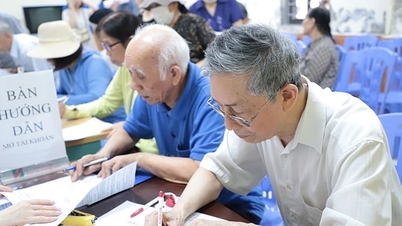




















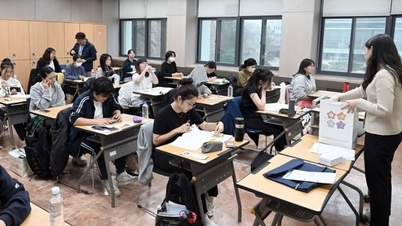







































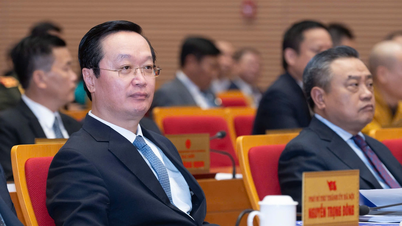




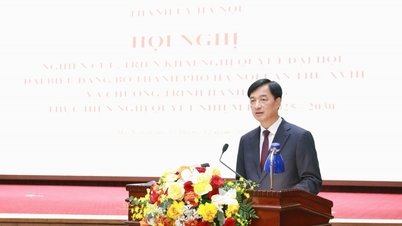







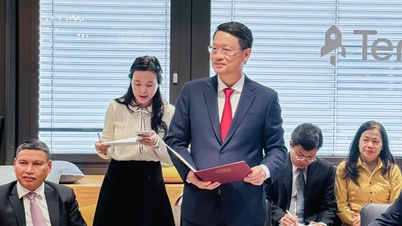











![Dong Nai OCOP transition: [Article 3] Linking tourism with OCOP product consumption](https://vphoto.vietnam.vn/thumb/402x226/vietnam/resource/IMAGE/2025/11/10/1762739199309_1324-2740-7_n-162543_981.jpeg)







Comment (0)